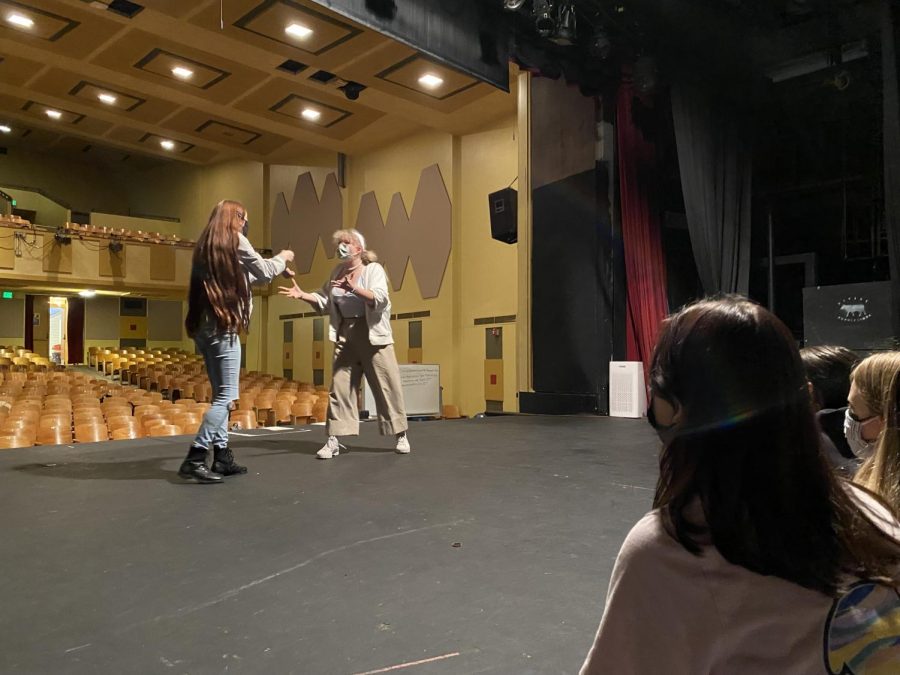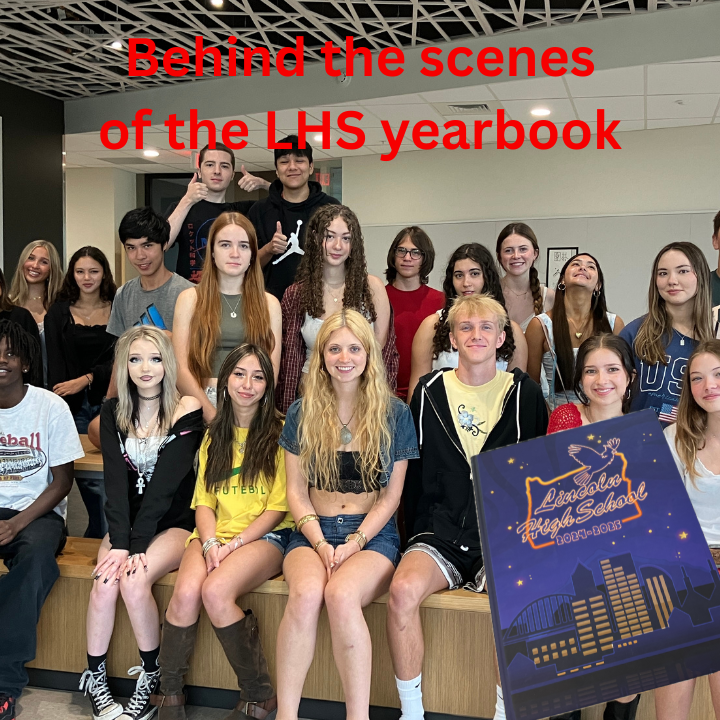Theatre students adjust to mask requirements
Theatre students are faced with new changes due to new mask requirements, and how this affects their performances.
October 11, 2021
As the world continues to adapt to masks and social distancing, so is theater at Lincoln. Unlike many theaters around Portland, which allow performers to take off their masks during shows, Lincoln theater students are following school guidelines.
“Right now, all classes [are required to] wear masks. If we’re doing a vocal unit, we’re still wearing a mask. And once we get into performances, right now, we are assuming all those performances will be masked somehow,” said Lincoln’s theater teacher, Jim Peerenboom. “For PopCycles, we are planning a performance around the idea that these people would have something covering their face. We’re going to try and make it look more intentional.”
Peerenboom has been teaching since 1989. Before settling in to teach theater at Lincoln, he taught art at Salem School of Performing Arts, and, shortly after, English, reading and theater at a middle school.
This year, Peerenboom is slightly changing his curriculum in order to cater to masks.
“I used to spend a little bit of time with articulation. This year we’re going into a much bigger push on, how do you project?” he said. “Everyone’s got to be able to work around this.”
As theater class starts their improv unit this year, Peerenboom has encountered problems with hearing and speaking. Improv is largely based on the other person in the scene, so masks have provided a barrier to communication.
“They can’t hear each other very well, and they’re being respectful. So instead of having people repeat things over and over more in the moment, it’s been a lot more, I’m just going to guess what I just heard and keep going,” he said.
Sydney Sallman, a senior and theater class TA, agreed with Peerenboom. She emphasizes the importance of facial expressions while acting.
“Acting is reacting, and with masks, there’s only so many facial expressions you can react to. It’s definitely difficult,” she said. “But I think we fully understand why we have to do it, and we will work with the safety measures, obviously. It’s just not something that we love, but we understand why we have to do it.”
While masking brings new obstacles, Sallman believes that there have been silver linings.
“I do think that it is helpful because a lot of people are learning how to project, because they know that they have to be louder for people to hear. It also is pushing people to try and find new ways of expression and getting your emotions across in a scene,” she said.
Allison Khalil, a junior and theater student this year, agreed with Sallman. She believes that masking has changed the way students perform, but for the better.
“You have to put more energy into your performance and not only be able to do [that], but your performance through your eyes has to work a little harder [as well],” she said.
Sallman also believes that setbacks can be a learning opportunity and reflects on a piece of advice she heard from one of her theater directors.
“Limitations in theater can sometimes lead to great things, and a good performance [is something] that you learn from,” she said. “So there’s a lot of things that we can do and a lot of good things we can take from wearing masks.”





